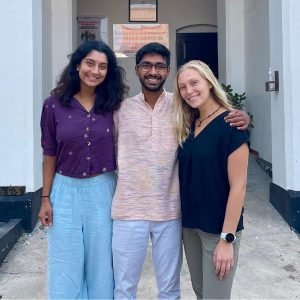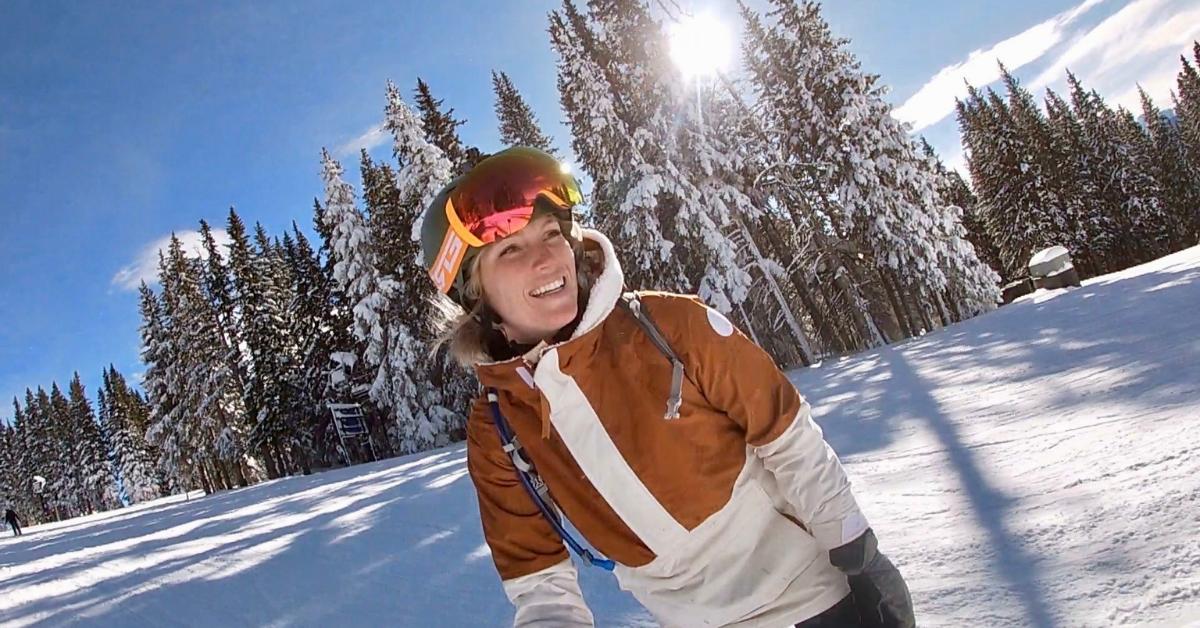"I aspire to work at the local level, building rapport with marginalized communities to create healthy and sustainable food systems."
Where did you grow up? Where did you attend undergrad and what was your degree/area of study?
[Kali] I grew up in Lakeville, MN, and completed my bachelor’s in public health at the University of Iowa.
What was that moment in your life when you decided you wanted to study public health?
[Kali] I stumbled into public health accidentally during undergrad. Initially, I was pursuing a nursing major, but I found that the curriculum was not the right fit for me. Then, unexpectedly, my academic advisor declared me a public health major without consulting me. Surprising as it was at the time, I am eternally grateful for that decision.
During my undergraduate studies, I took a Fundamentals of Public Health course that significantly broadened my perspective. My professor taught me that obesity wasn’t solely a result of lack of willpower, but rather a complex issue influenced by external factors such as social determinants of health, public policy, environmental health, and nutrition. From that moment on, I knew that working in public health, where I could make a bigger impact on population health, was the right path for me.

What specific issue, problem, or area of research in public health do you care the most about and why?
[Kali] I enjoy exploring a wide variety of public health topics, and I am particularly passionate about public health nutrition. Through my studies and professional work, I have come to recognize that nutrition consistently presents a silent threat to the health and well-being of individuals and communities. Public health is a multifaceted field; while many perceive nutrition as solely an individual concern—what people eat—it extends far beyond that. Numerous populations lack physical and economic access to sufficient safe and nutritious food that meets their dietary needs and preferences for maintaining an active and healthy life. Interestingly, nutrition is often misconstrued and not always at the forefront of preventive efforts. Its ever-evolving science makes the topic challenging for both academics and the public.
How would you like to help address or explore this issue?
[Kali] There are many ways to address the issues in public health nutrition. Firstly, taking a holistic approach is imperative in tackling any public health issue. I aim to provide the public with the ability to purchase and consume healthy foods tailored to their dietary patterns by addressing the social determinants of health for that population. This can be achieved through policy work, educational materials, and communications. Personally, I aspire to work at the local level, building rapport with marginalized communities to create healthy and sustainable food systems.
Why did you choose to come to the U of M School of Public Health?
[Kali] U of M SPH is renowned as one of the top schools of public health, and its proximity to my family made it an easy decision for me to apply. With my boyfriend and family already here, and considering the school’s strong reputation, everything seemed to align perfectly. During my time at SPH, I discovered a genuine care for students throughout the institution. Whether you speak to students, staff, faculty, or anyone else, you’ll find that they all prioritize taking care of each other. It’s a unique and rare culture that I’ve come to appreciate deeply.
What are the reasons why you chose your program? What do you like about it?
[Kali] I knew I didn’t want to pursue dietetics, so this program’s concentration in nutrition without requiring a dietetic internship was appealing to me. Additionally, I love my program director, Jamie Stang, who is not only awesome but also has extensive connections. She has had a significant impact on me during my time at SPH.
What has been your favorite class so far?
[Kali] All of my coursework has been so different, and I have enjoyed all of it. If I had to choose one, I would say Qualitative Research Methods in Public Health Practice [PubH 6636] taught by Melissa Laska. I learned a lot from that course that I felt was directly applicable to my future public health work.
What is your vision for an antiracist school of public health?
[Kali] The most important component to an antiracist school of public health is openness and honesty. We aren’t going to do all the right things. We can try things one way, it can backfire, and then we take a different approach. It is about engaging the right people and constantly wanting to grow instead of being afraid to make mistakes.

What do you like to do when you’re not in class?
[Kali] I have a ton of hobbies! I like to paint, camp, hike, bike, and read. I also love spending time with my 16-year-old dog, Kobe.
What do you like about living in Minnesota, and do you plan on staying here after graduation?
[Kali] I love the seasons! Minnesota is stunning, and I relish the myriad opportunities to explore the outdoors. From bike paths to parks, and from snowboarding in the winter to sailing in the summer, there’s always something exciting to do. Northern Minnesota, especially places like the Boundary Waters, is incredibly picturesque. As for my future plans, I’m torn. While I’d love to stay, I’m also keeping an eye out for opportunities beyond the state.

